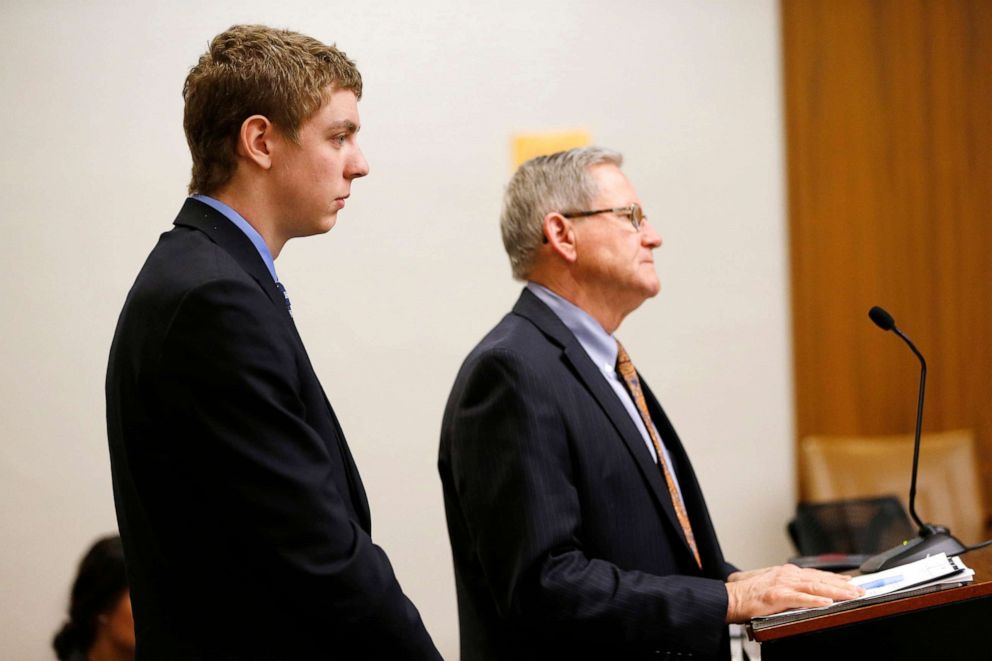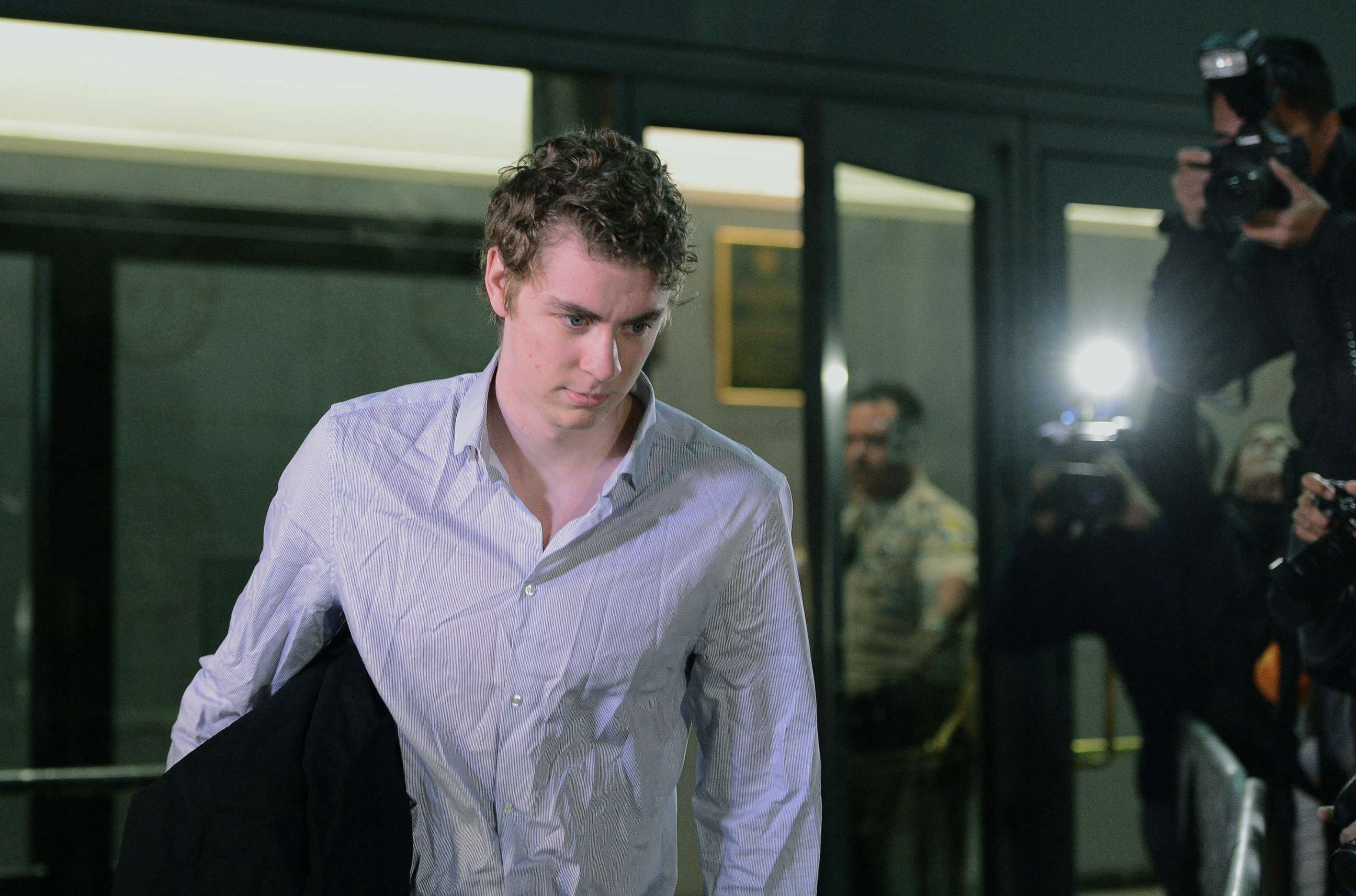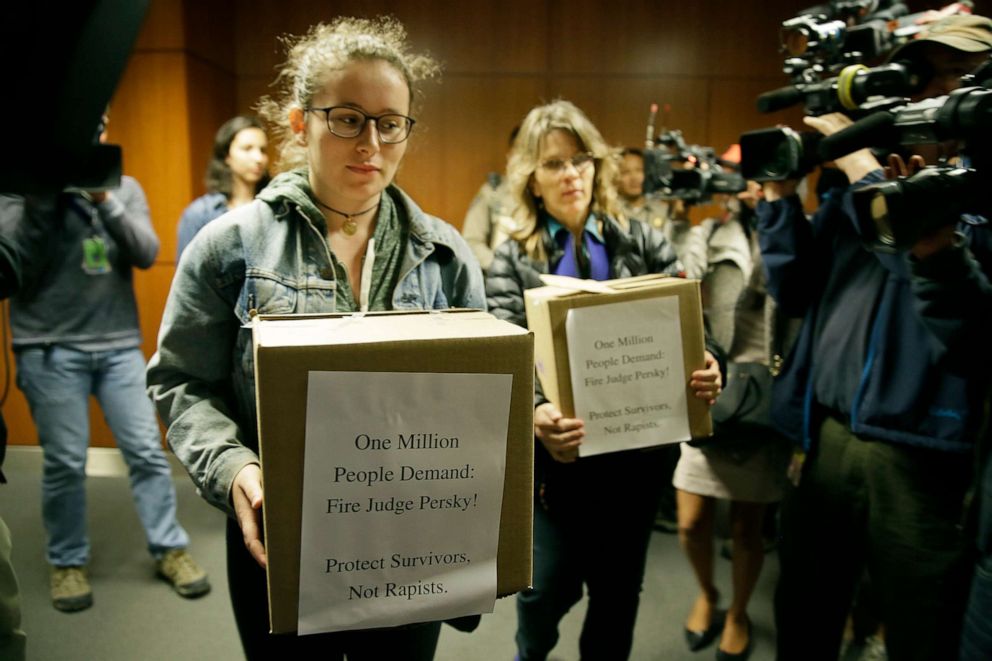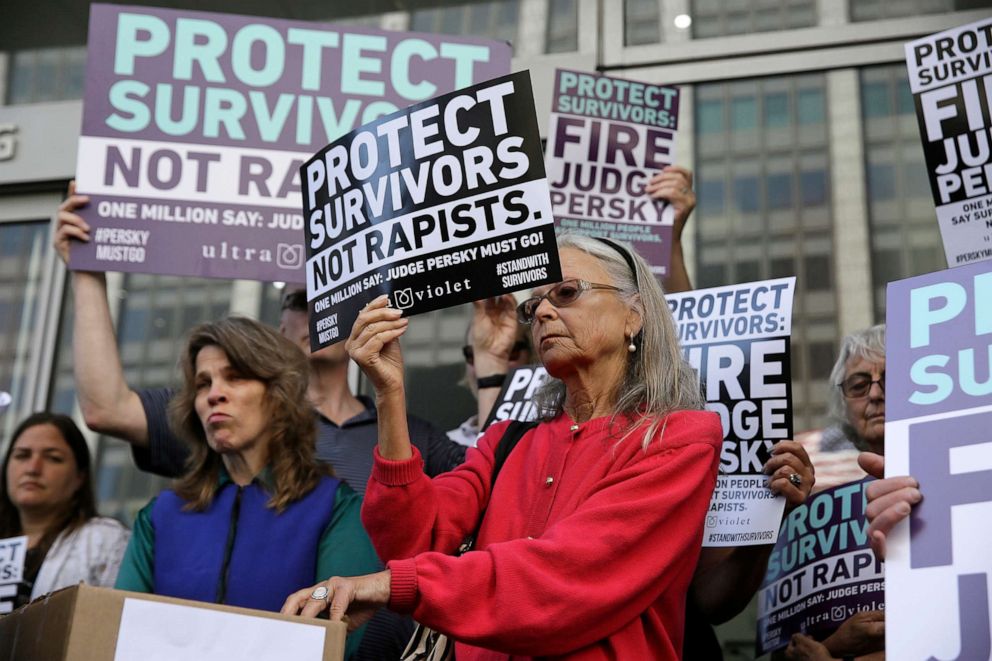'Humiliated': Chanel Miller, survivor in Brock Turner sex assault case, shares her story of trauma and recovery
For years, Emily Doe suffered behind the scenes after she was sexually assaulted, shielded from public view by laws that kept her anonymous.
By contrast, the trial for her attacker, Brock Turner, garnered national headlines for the leniency a judge showed to the former Stanford athlete and the protests the decision sparked.
When the trial was over, the anguish and humiliation she felt from the attack and the public display of her body during the court case only deepened.
Now, Emily Doe, whose real name is Chanel Miller, has come forward, sharing her name and her story and revisiting the trauma that followed the attack.

In Miller's memoir "Know My Name," released on Tuesday, she reveals her journey as she coped with the assault, waded through the court system and began to heal.
The assault
In January 2015, Miller was 22, in her first post-college job, and living at home with her parents near Stanford's campus. Her sister invited her to a Stanford fraternity party, where she said she enjoyed herself and drank. The last thing she remembered was taking a sip of lukewarm beer and handing it to her sister, she said.
The assault was stopped by two men who noticed that Miller, partially naked and lying by a dumpster, wasn't moving. Turner, a 19-year-old Stanford swimmer, fled, but the witnesses tackled him and held him until police arrived, authorities said.
Miller said her next memory was waking up in the hospital.
There, she was given pamphlets on assault recovery, photographed naked to record each bruise, interviewed by a detective about every detail of her night and underwent a rape kit exam.
While the experience was traumatic, she recalled that the nurses were professional and motherly, without a hint of pity in their voices.

"I didn't like the chilled metal, the stiff heads of cotton, the pills, syringes, my thighs laid open," she wrote. "But their voices soothed me, as if we were here to catch up on life, handing me a cup of neon pink pills like it was a mimosa."
Her worried sister picked her up and they returned home. Miller, so confused by this "alternate reality," in which she didn't know exactly what happened, didn't tell her parents or boyfriend -- and instead return to work and daily life, she wrote.
Detectives told her she was the victim of a suspected sex assault but also said it wasn't clear exactly what happened. Later that was revealed to be digital penetration.
That morning at the hospital she was given some papers to sign. "I stopped when I saw the words Rape Victim in bold at the top of one sheet," she wrote. "I paused. No, I do not consent to being a rape victim. If signed on the line, would I become one? If I refused to sign, could I remain my regular self?"
She knew a suspect was arrested in the case, but didn't know his identity, instead learning his name in online news reports 10 days later.
The trial
Miller later told her parents about the assault, and as she geared up for trial, she quit her job, the court schedule and the trauma now consuming her life.
Everyone in there had already seen me naked.
She also told her boyfriend, who she said was a great supporter. Miller said the prosecutor seemed relieved to meet him -- a sweet, Ivy League graduate student.
"It bothered me that having a boyfriend and being assaulted should be related, as if I, alone, was not enough," she wrote. "At the hospital it had never occurred to me that it was important I was dating someone; I had only been thinking of me and my body. It should have been enough to say, 'I did not want a stranger touching my body.' It felt strange to say 'I have a boyfriend which is why I did not want Brock touching my body.'"
Miller said she felt her "character was just as much on trial" as Turner's; she agonized over what to wear to court and how to act, insecure about appearing as an imperfect victim who drank and had occasionally blacked out.
Miller said she learned at one point that evidence photos of her naked body were shown in court -- "for the judge and Brock and his brother and his father and every reporter and stranger in that room to see."
"While this was happening, I must have been down the hall, smoothing out my blouse... trying to look presentable," she wrote. "The humiliation, I feel now, for walking in with a smile while everyone in there had already seen me naked."
The conviction and sentence
Turner, who maintained the encounter was consensual, was found guilty in 2016 of three felony charges: assault with intent to commit rape of an intoxicated/unconscious person, penetration of an intoxicated person and penetration of an unconscious person.

After the conviction, Miller, who was still living with her parents, broke down.
"During trial I had to shut down to make it through," she explained in her book. "Now came the release, my body helpless against the anguish."
Turner, a former Stanford swimmer, was facing up to 14 years in prison, but prosecutors asked for six years.
Turner's dad made a controversial plea for leniency at the time, telling the judge "20 minutes of action" should not define his son's life.
"In swimming, one one-hundredth of a second is the different between victory and loss," Miller wrote. "Yet he wanted to write off twenty minutes as insignificant... who counts the doctors visits, the hours spent wringing my hands in therapy, the nights spent lying awake?"
Judge Aaron Persky sentenced Turner to six months in jail and three years probation, citing the "severe impact" that prison would have on the former college athlete. The move sparked protests as well as calls for the judge to be recalled, which he was two years later.
Turner was released after three months.

The night after sentencing, Miller said she realized she beat the odds in sex assault cases: a suspect was arrested, tried and convicted -- yet she was devastated and felt the sentence was barely a punishment.
"My lost job, my damaged hometown, my small savings account, my stolen pleasures, my pains, had all amounted to ninety days," she wrote. "My pain was never more valuable than his potential."
A victim impact statement heard around the world
Miller's identity remained unknown, but she unleashed her anger through her victim impact statement which she read at sentencing.
"My independence, natural joy, gentleness, and steady lifestyle I had been enjoying became distorted beyond recognition," she said in the statement. "I became closed off, angry, self deprecating, tired, irritable, empty."
The statement, which went viral after being published, was translated to other languages, even performed in sign language. Messages flooded in from fellow survivors and supporters, from as far away as India and China, and Miller said she read them from her bedroom in her pajamas. When Miller went to a new therapist, before she disclosed her identity, the therapist even recommended she read the Emily Doe statement.
Knowing her voice was finally being heard, and was speaking to other survivors, helped her own healing.
Miller said she would escape to an alternate reality to cope, imagining the assault didn't happen and that she was living with a "nine-to-five, sunny days, a healthy body," she wrote.
But one letter to Emily Doe changed her life -- a 16-year-old who said the victim impact statement helped her get out of bed for first time in two years.
"I accepted what happened," she wrote. "Although it was painful, look what it led to."
The aftermath
The high-profile trial and viral impact statement became catalysts for change in the California legal system.
California Gov. Jerry Brown in 2016 signed two laws inspired by Miller's case: one to ensure that anyone convicted of sex assault in California can't be sentenced to probation; and another closing a loophole in the state penal code by noting that "all forms of non-consensual sexual assault may be considered rape for purposes of the gravity of the offense and the support of survivors," said lawmakers.
In 2018, Californians voted to remove Judge Persky -- who presided over the case -- from the bench, after many criticized him for giving Turner a sentence they called too lenient. Persky weeks before the vote called the move a "step too far," he said, according to Palo Alto Online. "It really runs the risk of putting judges out there in the political arena and making them subject to that type of political pressure," he added.


Turner appealed his conviction, but the appeal was denied in 2018. His appeals attorney, Eric Multhaup, did not immediately respond to ABC News' request for comment.
Meanwhile, Miller and her boyfriend moved to San Francisco, but she couldn't sleep alone, terrified of being unconscious and vulnerable -- the same state she was in during the assault.
When the sun would go down, she'd turn on all the lights, stack chairs in front of the door and arm herself with pepper spray and scissors.
"In the past few years, I have not slept alone for longer than three days," she wrote. "When I find out female friends live in studio apartments I'm in shock. But who's your witness? Who's going to protect you from all the anythings that can happen? Don't you understand that alone they'll never believe you?"
Miller urges people to listen to stories of sexual assault, even when it is difficult, and to think of survivors not as victims or inspirational stories, but as whole people who had lives before and after the attacks.
"When you hear a story about rape, all the gruesome and unsettling details, resist the instinct to turn away; instead look closer, look deeper, because beneath the gore and the police reports is a whole, beautiful person, looking for ways to be in the world again."
ABC News' Enjoli Francis, Ali Ehrlich, and Meghan Keneally contributed to this report.




